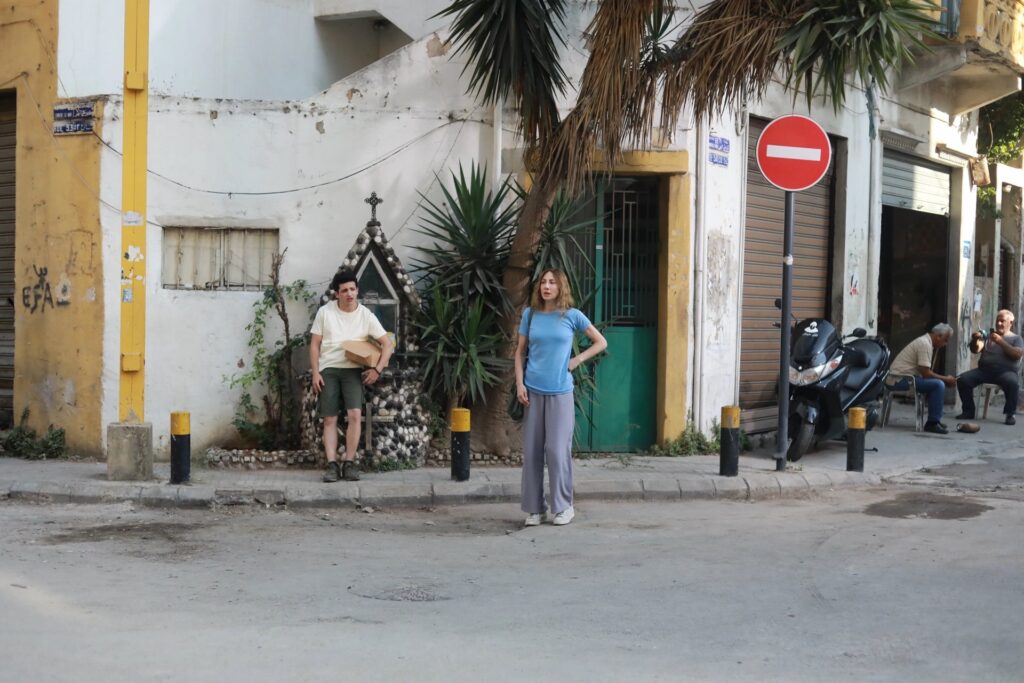Borrowing the central conceit from the Italian classic Bicycle Thieves, Lebanese filmmaker Mira Shaib creates an eclectic and endearing tribute to her home city of Beirut in her feature debut, Arzé.
The ByTowne Cinema screened the film on March 16 as part of the International Film Festival of Ottawa (IFFO).
The film follows Arzé, a single mother who lives with her eccentric, agoraphobic sister and moody teenage son, Kinan. These two characters are also partners in Arzé’s homemade pie business, which supports the family. When she scrapes together enough money to put a down payment on a motorized scooter that is promptly stolen, Arzé drags Kinan on a wild chase across Beirut to get it back.
While Arzé shares Bicycle Thieves’ naturalistic examination of working-class life, Shaib’s re-framing of the narrative as a warm and sentimental romp keeps it from being weighed down by its overt similarities to Vittorio De Sica’s dreary masterpiece.
The opening few scenes take their time to establish this somewhat uneven cast of characters. Arzé is an immediately compelling and sympathetic protagonist—actress Diamand Abou Abboud’s face constantly expresses the weariness of her stressful life and the comfort she finds in her little family.
Her sister has little depth beyond her narrative function, and Kinan’s immaturity and moodiness often feel cliched, although played charismatically by Bilal Al Hamwi, and has an endearing chemistry with Arzé.
The film picks up quite a bit of steam once the chase after the scooter begins. Looking for leads on underground car theft rings, Arzé is launched around like a pinball to various neighbourhoods where she must negotiate with information brokers in Sunni, Shia, Maronite and Palestinian communities. Her attempts to blend in with the different ethnic and religious groups in Beirut are both a humorous recurring bit and a poignant depiction of sectarianism within the city.

Arze. Photo from IFFO website.
Shaib’s Beirut is also populated by colourful characters that Arzé and Kinan encounter in shops, homes and on the street. Particularly memorable is a jewelry store owner played by Shaden Fakih, whose bewilderment at Arzé’s repeated visits for different religious symbols and garb had the packed screening at the ByTowne laughing out loud.
Arzé also has a distinct look—Beirut is photographed in an extremely wide aspect ratio with hyper-saturated colours. While this creates some awkward dead space in some interior scenes, it is well-suited to the city streets, as though Shaib is trying to cram as much vivid detail of the city as possible into each frame.
The comedy and sweetness of this winding adventure through Beirut slowly give way to some emotionally stark character moments between Arzé, her sister and Kinan. Since Arzé is a much more realistic, lively and sympathetic character than either of these supporting roles, it is hard not to side with her even as the film attempts to critique her selfishness. Still, it’s a testament to the protagonist’s strength that the prevailing sentiment of these climactic moments is: “Won’t somebody just say ‘thank you’ to Arzé?”
Despite some narrative and stylistic stumbling blocks often characteristic of feature debuts, it is easy to be won over by Arzé’s pure passion and sincerity. Shaib fits laughs, social commentary, and tender, heartfelt moments into a finely crafted package that doesn’t overstay its welcome.
Arzé was screened on March 16 at the ByTowne Cinema as part of the International Film Festival of Ottawa (IFFO). IFFO continues until March 23. Check out the film lineup here, and keep an eye out for future reviews from us!












